Special Needs
Medical services

primary care
Primary care medicine is defined as medical care that is provided by physicians specifically trained and skilled in comprehensive first patient contact and continuing care, specifically in the prevention, diagnosis, and treatment of adult diseases. Primary care also includes health promotion, disease prevention, health maintenance, counseling, patient education, diagnosis and treatment of acute and chronic illnesses.
Primary care providers differ from specialty providers in that they care for and treat any undiagnosed sign, symptom, or health concern not limited by problem origin (biological, behavioral, or social), organ system, or diagnosis. Primary care physicians often act as advocates for the patient in coordinating the use of the entire health care system to benefit the patient, and many times it is a primary care provider who will recommend a patient to a specialist when it is needed. Your p rimary care provider will often follow up with the specialist as well, acting as a contact and central location from which your overall health is managed, monitored, and coordinated. These primary care providers are often referred to as internists, family care providers, or primary care physicians. A primary care provider that specializes in seeing children or adolescents is known as a pediatrician.
Primary care providers differ from specialty providers in that they care for and treat any undiagnosed sign, symptom, or health concern not limited by problem origin (biological, behavioral, or social), organ system, or diagnosis. Primary care physicians often act as advocates for the patient in coordinating the use of the entire health care system to benefit the patient, and many times it is a primary care provider who will recommend a patient to a specialist when it is needed. Your p rimary care provider will often follow up with the specialist as well, acting as a contact and central location from which your overall health is managed, monitored, and coordinated. These primary care providers are often referred to as internists, family care providers, or primary care physicians. A primary care provider that specializes in seeing children or adolescents is known as a pediatrician.

neurology
Neurology is the medical specialty concerned with the diagnosis and treatment of disorders of the nervous system which is made up of the central and peripheral nervous system, and which includes the brain, spinal cord and nerves.
Neurologists can be principal care providers, consultants to other doctors, or both. When a person has a neurological disorder that requires frequent care, a neurologist may serve as the principle care provider along with the primary care physician. In a consulting role, a neurologist will diagnose and treat a neurological disorder and then advise the primary care doctor managing the person's overall health. Neurologists can recommend surgical treatment, but they do not perform surgery. Neurosurgeons are medical doctors who specialize in performing surgical treatments of the brain or spine.
Neurologists can be principal care providers, consultants to other doctors, or both. When a person has a neurological disorder that requires frequent care, a neurologist may serve as the principle care provider along with the primary care physician. In a consulting role, a neurologist will diagnose and treat a neurological disorder and then advise the primary care doctor managing the person's overall health. Neurologists can recommend surgical treatment, but they do not perform surgery. Neurosurgeons are medical doctors who specialize in performing surgical treatments of the brain or spine.

psychiatry
Psychiatry is the branch of medicine focused on the diagnosis, treatment, and prevention of brain and behavioral disorders. A psychiatrist is a medical doctor specializing in the assessment and treatment of psychotic, mood, anxiety, attentional, eating, substance abuse and cognitive disorders. The symptoms a psychiatrist confronts can range from auditory, visual or other hallucinations; paranoid, grandiose or bizarre delusions; mood depression or elevation (mania); panic, social anxiety or obsessive-compulsive disorders; attention deficits or hyperactivity; anorexia, bulimia or over-eating; dementia or intellectual disabilities. In working with the intellectually disabled population, the psychiatrist is often called upon to address behavioral disturbances including agitation, aggression, violent and self-abusive behaviors. The treatment tools employed include psycho-therapeutic techniques, psycho-social interventions, and pharmacology, as deemed appropriate. Some people seek the help of a psychiatrist for dealing with relationship problems, marital or child-rearing difficulties, bereavement and the stresses and strains of coping with other difficult life circumstances.

endocrinology
Endocrinology is the study of medicine that relates to the endocrine system, which is the system that controls hormones. An endocrinologist will deal with diseases that are caused by problems with hormones. The endocrine system is a series of glands that produce and secrete hormones that the body uses for a wide range of functions. These control many different bodily functions, including respiration, metabolism, reproduction, sensory perception, movement, sexual development and growth. Endocrinology is focused on the care and treatment of endocrine diseases.
Endocrinologists are specially trained physicians who diagnose diseases related to the glands. The diseases they are trained to treat often affect other parts of the body beyond glands. While primary care doctors know a lot about the human body, for diseases and conditions directly related to glands they will usually send a patient to an endocr inologist.
Endocrinologists are specially trained physicians who diagnose diseases related to the glands. The diseases they are trained to treat often affect other parts of the body beyond glands. While primary care doctors know a lot about the human body, for diseases and conditions directly related to glands they will usually send a patient to an endocr inologist.

dermatology
Dermatology is the medical specialty that includes, but is not limited to, diagnosis, treatment, or correction of ailments, diseases, injuries, or infirmities of the skin, hair, nails and mucous membranes, by any medical, surgical, pathologic or aesthetic means. Dermatologists diagnose and treat more than 3,000 different diseases. Some of the more common diseases include skin cancer, eczema, acne, psoriasis, and nail infections. Dermatologists can also work to improve the appearance of their patients' skin, hair, and nails, sometimes working to diminish wrinkles or other signs of aging, reducing the appearance of acne scars, or helping patients look like themselves again after surgery to remove skin cancer. Dermatologists treat patients of all ages from newborns to centenarians.

Women's Health
Women's health at The Blanche Kahn Family Health Center includes basic and essential Gynecological (GYN) care. While at this time we do not offer any prenatal care or OB related care, we do provide comprehensive annual GYN checkups which include breast exams, pelvic exams and pap smears, as well as referrals for mammograms and pelvic ultrasounds as needed. Women's health also includes all family planning matters, including Depo-Provera injections, STD testing, and patient education in all related areas.

podiatry
Podiatry or podiatric medicine is a branch of medicine devoted to the study of, diagnosis, and medical and surgical treatment of disorders of the foot, ankle and lower extremity.
A podiatrist is a doctor of podiatric medicine (DPM), also known as a podiatric physician or surgeon. Podiatrists are the most qualified doctors to care for your feet. Podiatrists can specialize in many fields, including surgery, sports medicine, wound care, pediatrics (children), and diabetic care. Feet are complex anatomical structures, that are instrumental to overall health and well-being. Regular foot care can help to prevent, detect, intervene, and care for most foot and ankle problems. Some common foot problems that are treated by podiatrists include arthritis, diabetes management to avoid foot related issues, sprains, strains and fractures, heel pain, tendinitis, athletes foot, corns and calluses, psoriasis, sweaty fe et, warts, toe joint and nerve disorders including bunions and hammer toes, as well as toenail related problems including ingrown nails and fungus.
A podiatrist is a doctor of podiatric medicine (DPM), also known as a podiatric physician or surgeon. Podiatrists are the most qualified doctors to care for your feet. Podiatrists can specialize in many fields, including surgery, sports medicine, wound care, pediatrics (children), and diabetic care. Feet are complex anatomical structures, that are instrumental to overall health and well-being. Regular foot care can help to prevent, detect, intervene, and care for most foot and ankle problems. Some common foot problems that are treated by podiatrists include arthritis, diabetes management to avoid foot related issues, sprains, strains and fractures, heel pain, tendinitis, athletes foot, corns and calluses, psoriasis, sweaty fe et, warts, toe joint and nerve disorders including bunions and hammer toes, as well as toenail related problems including ingrown nails and fungus.
Therapy services

Psychotherapy
Psychotherapy is a treatment that involves an interactive relationship between a therapist and patient. It can be used to treat a broad variety of mental disorders and emotional difficulties. The goal of psychotherapy is to eliminate or control disabling or troubling symptoms so the patient can function better and enjoy a greater quality of life. Depending on the extent or nature of the problem, treatment may take just a few sessions or may take many sessions over a period of years. Psychotherapy can be done individually, as a couple, with a family, or in a group.
There are many forms of psychotherapy. There are psychotherapies that help patients change behaviors or thought patterns, psychotherapies that help patients explore the effect of past relationships and experiences on present behaviors, and psychotherapies that are tailored to help solve problems in specific ways. The most prominently use modality of psychotherapy is Cognitive Behavior Therapy (CBT), which is a goal-oriented therapy focusing on problem solving and changing thought patterns and behaviors.
Many psychologists use an eclectic approach to therapy in which a variety of methods, principles and philosophies are used to create a treatment program that caters to a patient's unique needs. Rather than adhering to a certain school of therapy, eclectic therapists use techniques from all schools to treat patients.
There are many forms of psychotherapy. There are psychotherapies that help patients change behaviors or thought patterns, psychotherapies that help patients explore the effect of past relationships and experiences on present behaviors, and psychotherapies that are tailored to help solve problems in specific ways. The most prominently use modality of psychotherapy is Cognitive Behavior Therapy (CBT), which is a goal-oriented therapy focusing on problem solving and changing thought patterns and behaviors.
Many psychologists use an eclectic approach to therapy in which a variety of methods, principles and philosophies are used to create a treatment program that caters to a patient's unique needs. Rather than adhering to a certain school of therapy, eclectic therapists use techniques from all schools to treat patients.

occupational therapy
In occupational therapy, the ultimate goal is to help an individual participate more independently and effectively in their occupations, or activities of daily living (ADL's), through the use of functional interventions. Occupational therapy interventions are wide-ranging and may include basic ADL training, advanced ADL training, ROM/strength/neuromuscular procedures, and/or adaptive equipment assessment and recommendations. Occupational therapy services typically include an individualized evaluation, customized interventions based on the individual's needs and goals, and an outcome evaluation to ensure that the goals have been met.

physical therapy
Physical therapy is a type of treatment a person may need when health problems make it hard to move around and do everyday tasks. It helps the person move better and relieves pain. It also helps improve or restore physical function and fitness level. The goal of physical therapy is to make daily tasks and activities easier. For example, it helps with walking, going up stairs, or getting in and out of bed. Physical therapy can help with recovery after some surgeries. A doctor may suggest physical therapy for injuries or long-term health problems such as arthritis or chronic obstructive pulmonary disease (COPD).
A physical therapist examines the patient and talks to him/her about their symptoms and daily activity. The therapist will then work with the patient on a treatment plan. Goals are set to help joints move better and to restore or increase your flexibility, strength, endurance, coordination, and/or balance.
A physical therapist examines the patient and talks to him/her about their symptoms and daily activity. The therapist will then work with the patient on a treatment plan. Goals are set to help joints move better and to restore or increase your flexibility, strength, endurance, coordination, and/or balance.

speech therapy
The Speech Therapy team at the Blanche Kahn Family Health Center provides evaluation and treatment of a variety of speech and language disorders in adults with intellectual disabilities stemming from neurological, genetic, or developmental disorders. Through their compassionate care and extraordinary clinical technique, the SLP's at BKMC provide tailored treatments to address expressive language disorders, receptive language disorders, cognitive impairments, motor-speech disorders, and pragmatic skills deficits, among others. Their long term goal is to improve their clients' quality of lives by strengthening their skills for improved communication and self-care outside the therapy room.

Psychological Evaluations
The nature and extent of an individual's developmental disability is determined through psychological testing. These tests are performed by professionals in the field, and are always necessary to determine whether a person is eligible for services funded by the NYS Medicaid Waiver which is funded by OPWDD – The Office for People With Developmental Disabilities. While it is ultimately OPWDD that determines whether a person has a developmental disability and is eligible for OPWDD funded services, a psychological evaluation is required in order for OPWDD to make that determination.
Psychological testing is not to be confused with psycho educational testing, which refers to the psychological tests used to analyze the mental processes underlying a child's educational performance. When scheduling a psychological evaluation it is important to ensure that any previous testing that was done is included in the referral to make certain that no unnecessary testing is performed and that the needs of the client are appropriately addressed.
Psychological testing is not to be confused with psycho educational testing, which refers to the psychological tests used to analyze the mental processes underlying a child's educational performance. When scheduling a psychological evaluation it is important to ensure that any previous testing that was done is included in the referral to make certain that no unnecessary testing is performed and that the needs of the client are appropriately addressed.

Psychosocial Evaluations
Psychosocial evaluations are performed in order to develop a better understanding of a person within the context of his/her social environment. This translates into a session with a qualified social worker who meets with the individual and his/her family in order to obtain information about the individual's family, childhood development including social-emotional, medical, educational and or vocational history.
Additional points of interest are the communication abilities of the individual being evaluated as well as the preferred language, current social functioning, and other relevant information pertaining to the individuals needs and abilities. When documentation is not available about the manifestion of the individuals developemental disability prior to the age of 22, a Comprehensive Psychosocial Evaluation can support the Developmental Disability Diagnosis.
Additional points of interest are the communication abilities of the individual being evaluated as well as the preferred language, current social functioning, and other relevant information pertaining to the individuals needs and abilities. When documentation is not available about the manifestion of the individuals developemental disability prior to the age of 22, a Comprehensive Psychosocial Evaluation can support the Developmental Disability Diagnosis.
New Patient Registration Process
2
Complete
Complete the registration packet
3
Documents
Gather requested documentation listed on the first page
4
submit
Submit your completed packet with documents using one of the following methods:

1221 East 14th Street Brooklyn, NY 11230


providers
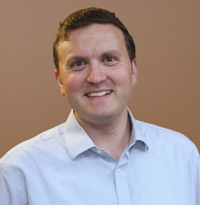
Avi
Friedman
Psychologist
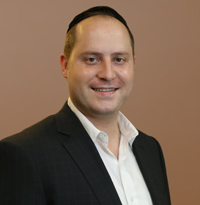
Shlomo
Koslov
Psychologist
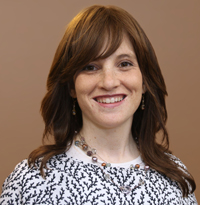
Perel
Brodt
Physical Therapist
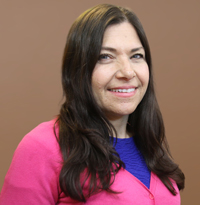
Gina
Healy
Physical Therapist
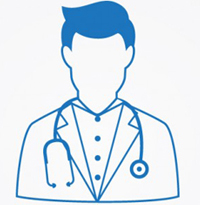
Ronit
Finkelstein
Speech Therapist












